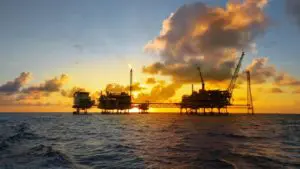NSW transmission network operator TransGrid has announced a new initiative to try to reduce peak electricity demand in metropolitan Sydney over the summer months – a move it says could cut power consumption by the equivalent of switching off around 50,000 air conditioners. TransGrid managing director, Peter McIntyre, revealed late last week that the company had reached an agreement with global demand-side response services company, EnerNOC, to provide 35MW of demand response capacity for the Sydney metropolitan area, and to work with Sydney’s major energy users to shift their power usage out of peak times.
McIntyre said that EnerNOC’s DemandSMART software – in use at thousands of sites worldwide – would help some of Sydney’s largest energy users – such as universities, data centres and manufacturing facilities – understand how they consume energy and to more actively manage their energy usage in real time, allowing them to reduce consumption at peak times. “TransGrid’s program will help reduce electricity demand by approximately 35MW in peak summer periods, effectively allowing us to take the equivalent demand of up to 50,000 home air conditioners off the grid, when it is under the most pressure,” he said, adding that it would also enhance network reliability for consumers, keep supply and demand in balance and “reduce carbon emissions by an estimated 700 tonnes.”
For its part, EnerNOC said it saw “significant opportunity” in the Australia and New Zealand markets. “(Our) program is ideally suited for organisations that use a large amount of energy and are looking for innovative ways to lower costs and improve their bottom lines,” said Jeff Renaud, EnerNOC’s director of Australia and New Zealand. And considering the recommendations expected to be made in the Senate Committee report (due to be tabled today) – including options for consumers to switch off during peak periods; greater power for the Australian Energy Regulator; a new consumer advocacy body – they could be onto something.
In other news…
Australia will need to import around 100 million tonnes of carbon abatement in 2020 to meet its greenhouse gas reduction targets, according to the first official emissions projections since the country’s carbon price was introduced. Australia has a 2020 target to cut emissions by 5 per cent of year 2000.
British Prime Minister David Cameron has sent a chill through the UK renewables sector by suggesting that government backing for renewable energy may be up for debate beyond 2020. BusinessGreen reports that Cameron failed to offset comments from energy minister John Hayes yesterday, opposing new onshore wind farms, instead suggesting investment in renewable energy beyond the mandatory 15 per cent target was still up for debate. “We’ve got a big pipeline of onshore and offshore projects that are coming through – we’re committed to those,” he said. “But frankly all parties are going to have to have a debate in this house and outside this house about what happens once those targets are met.”










